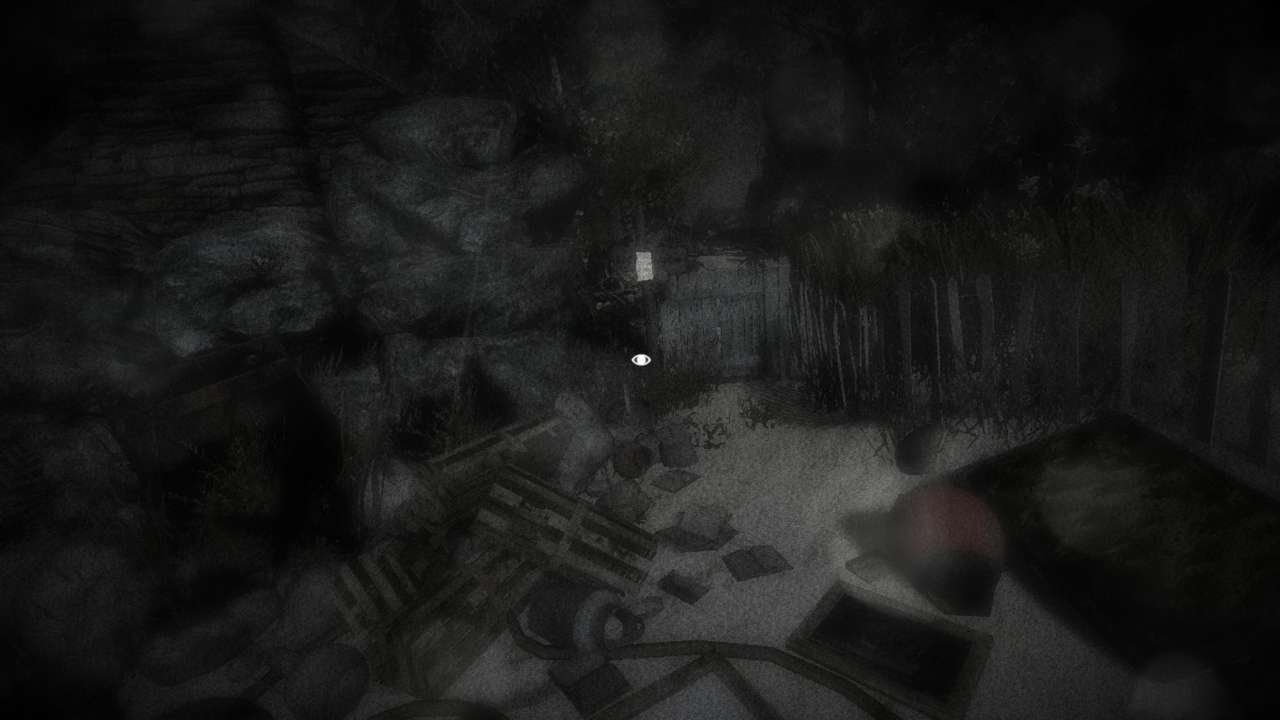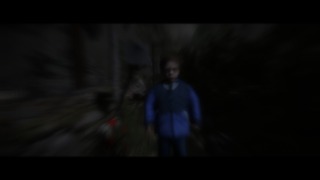Psychological horror is often predicated on a delicate balance of danger, atmosphere, and the willingness of the audience to buy into the premise. Montague's Mount is some special kind of hell, because it succeeds in crafting such an uneasy atmosphere that despite its problems with the rest of that formula, it compels you to keep playing, thus making you complicit in your own torture.
Montague’s Mount is based on the true story of one man marooned on an island and steadily losing his mind. That may sound like a generic premise for a thriller, but the game drops nuggets of Irish culture and uses Gaelic words, giving it an air of cultural authenticity. Amidst the struggle to find a walking stick, for example, you see the names of objects in the native tongue of the protagonist. Such attention to regional detail gives a folklorish slant to the obligatory cackling demonic children and abandoned houses you encounter. Unfortunately, no other facet of this deeply troubled game reveals a similar amount of loving care.

Montague's Mount copies the gameplay mechanics of older adventures like Myst, but proves that it's difficult to imitate a classic. You spend most of your time wandering the island and solving puzzles, and while you occasionally trigger cutscenes and voice clips, you're typically left to your own devices. That loneliness goes a long way towards creating a proper loop of tension and relief, but all too often, pervasive technical problems and design oversights hamper that immersion.
PolyPusher Studios utterly fails to teach you about the limits and goals of its own work.
Visuals are Montague's Mount's most apparent failing. Lighting and color are tools that designers typically use to guide you through levels, but this game's art direction serves only to obstruct you. The thick, inky darkness, film grain, and dull colors dominate the experience and are very poorly suited to identifying puzzles and then finding the items, and hints that you need to solve them. Even worse, the only instructions are left on small slips of paper strewn about the island, but the film grain is so bad that you can hardly read them. Thankfully, there are a few settings that you can play with to clean up the visuals, but doing so helps only so much, and if you remove the film grain, you immediately notice the lack of fine visual details the grain is designed to veil.
On the off chance that you find all the random bits that you need to progress, the puzzles are nothing if not obtuse. There’s no logic or reasoning behind where you find the dozen or so hidden items and puzzle pieces you need. Solutions are often provided by the game itself--for example, a stuck clock reveals what time you need to adjust a sundial--but those hints are often an annoyingly long walk away. Later puzzles, if they could even be called that, are too esoteric to solve without a hint. To proceed, you must either find a hard-to-discern clue in some seemingly random location, or make a profoundly lucky guess. Games like Myst call attention to vital sights and sounds, giving structure to their mysteries and instilling a sense of discovery. The comparatively insubstantial Montague's Mount offers none of this magic or clever guidance, failing to satisfy on every level.

During one of my more frustrating experiences, I had to find several colored spinners; write down the pattern of a buoy's flashing light; take that and convert it into Morse code; and then rotate the spinners to the proper color. The puzzle is ludicrous, and it diminishes the magical feeling of accomplishment and mental challenge that these sorts of environmental riddles are meant to evoke. Even worse, I never completed that particular section. I couldn't figure out where the last spinner was hidden within the pervading blackness, though luckily, the game unlocked the next section regardless. In addition, bugs that forced my character to glitch through textures left me stuck and forced me to restart time and time again.
Great games teach you. They provide a comprehensible structure and inspire in you a desire to explore their rules and their worlds. Montague's Mount, on the other hand, is a haphazard collection of obtuse puzzles strewn about an ill-lighted world that does nothing to call attention to them. While it might be easy to assume these frustrations echo the protagonist's apparent mental illness, PolyPusher Studios utterly fails to teach you about the limits and goals of its own work, and does little to illuminate how its puzzles relate to the real-world experience Montague's Mount tries to evoke. In so doing, it dishonors the story that inspired it, and the Irish culture to which it's paying tribute.